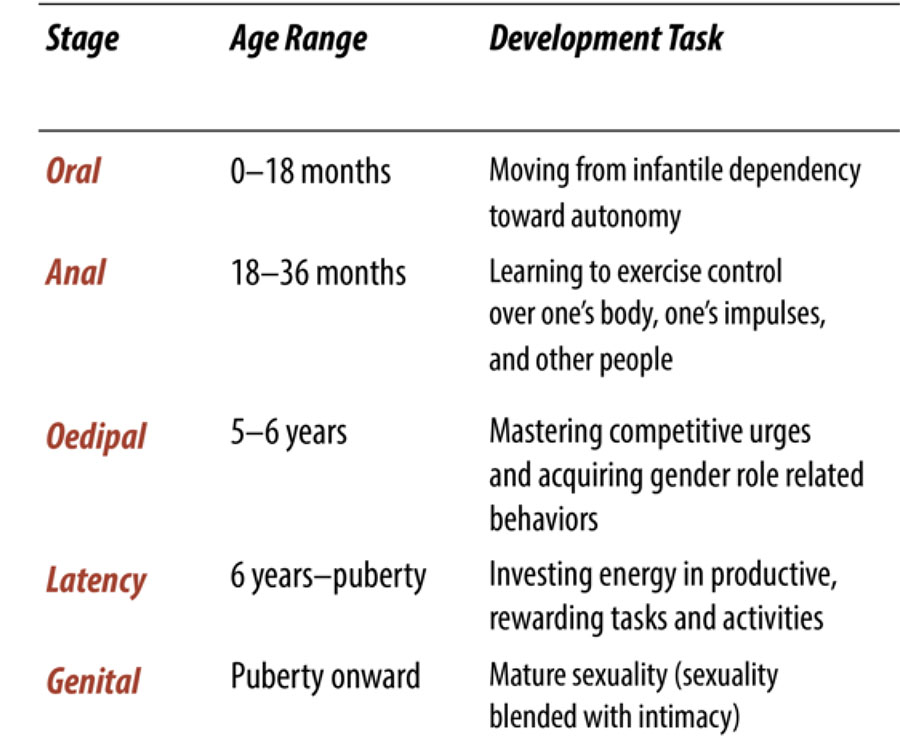- NEED HELP? CALL US NOW
- +919995411505
- [email protected]
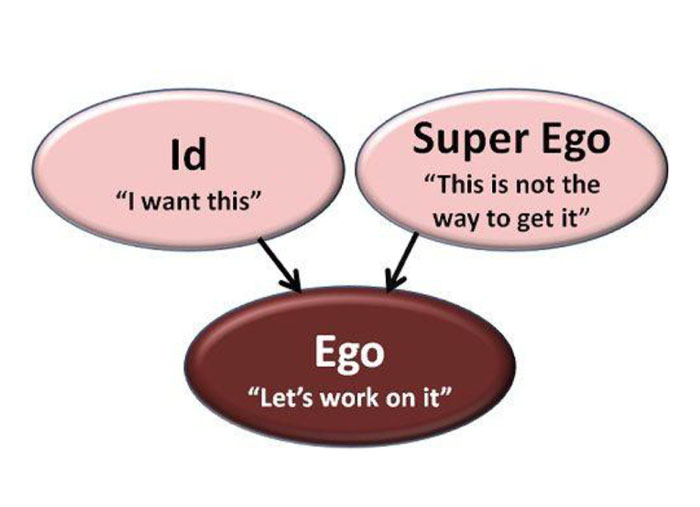
The psychodynamic theory is a psychological theory Sigmund Freud (1856- 1939) and his followers applied to explain the origins of human behavior.
- The psychodynamic approach includes all the theories in psychology that see human functioning based upon the interaction of drives and forces within the person, particularly the unconscious, and between the different structures of the personality
- The psychodynamic theory states that events in our childhood have a significant influence on our adult lives, shaping our personality
- Personality is shaped as the drives are modified by different conflicts at different times in childhood (during psychosexual development).
Elements
Sigmund Freud proposed three levels of consciousness known as the id, the ego, and the superego
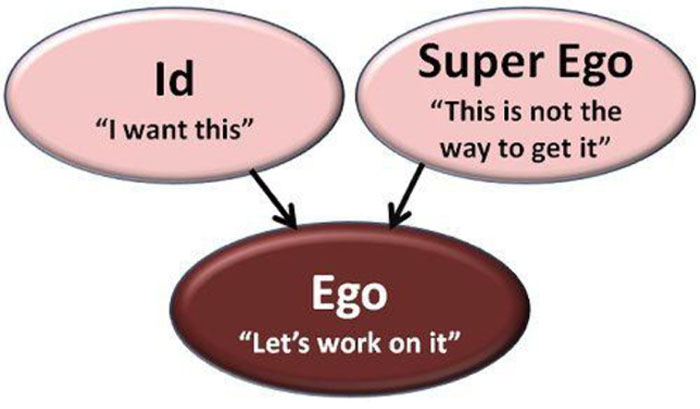
ID
- The id, the basic, primal part of the personality
- Is the part of the self with which we are born.
- Biologically-driven self and includes our instincts and drives.
- Part of us that wants immediate gratification.
- Later in life, it comes to house our deepest, often unacceptable desires, such as sex and aggression.
- It operates under the pleasure principle which means that the criteria for determining whether something is good or bad is whether it feels good or bad.
- An infant is all id.
EGO
- Begins to develop during the first three years of a child’s life.
- Part of the personality that negotiates between the id and the real world.
- According to Freud's theory, one could not solely pursue pleasure and still be a functional member of society, so the ego exists to provide some balance for the id, which is purely motivated by self-interest.
SUPEREGO
- Emerge around the age of five when a child interacts more and more with others, learning the social rules for right and wrong.
- The superego acts as our conscience; it is our moral compass that tells us how we should behave.
- It strives for perfection and judges our behavior, leading to feelings of pride or—when we fall short of the ideal—feelings of guilt.
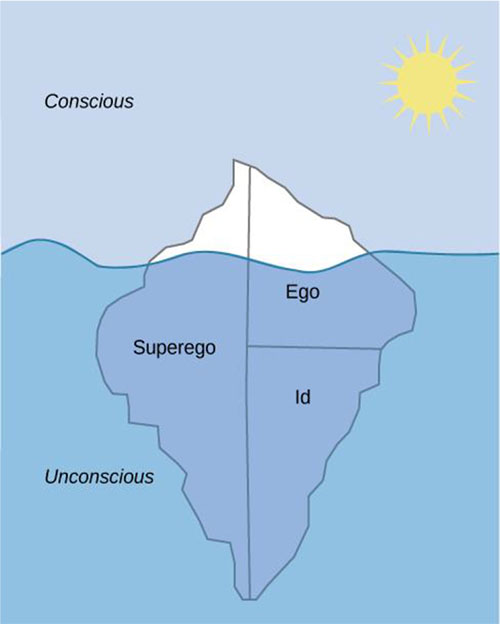
NOTE
According to the psychodynamic approach, the unconscious is the part of the mind which contains things we are unaware of, such as feelings, thoughts, urges, and memories. According to Freud (1915), the unconscious mind is the primary source of human behavior. Like an iceberg, the most important part of the mind is the part you cannot see. Our feelings, motives, and decisions are powerfully influenced by past experiences and stored in the unconscious.
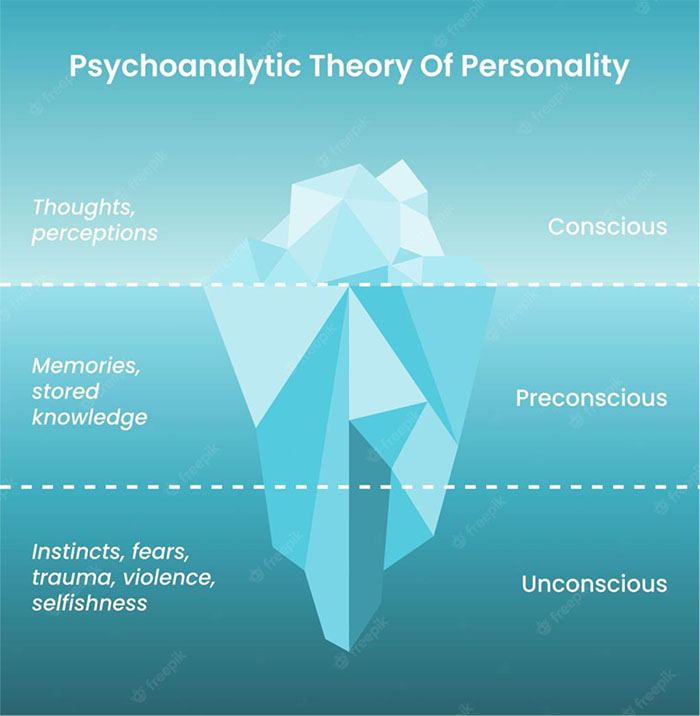
The id and superego are in constant conflict because the id wants instant gratification regardless of the consequences, but the superego tells us that we must behave in socially acceptable ways. Thus, the ego’s job is to find the middle ground. It helps satisfy the id’s desires in a rational way that will not lead us to feelings of guilt. According to Freud, a person who has a strong ego, which can balance the demands of the id and the superego, has a healthy personality.
STAGES
- Freud believed that personality develops during early childhood:
- Childhood experiences shape our personalities as well as our behavior as adults.
- He asserted that we develop via a series of stages during childhood. Each of us must pass through these childhood stages, and if we do not have the proper nurturing and parenting during a stage, we will be stuck, or fixated, in that stage, even as adults.
- In each psychosexual stage of development, the child’s pleasure-seeking urges, coming from the id, are focused on a different area of the body, called an erogenous zone.
- The stages are oral, anal, phallic, latency, and genital
